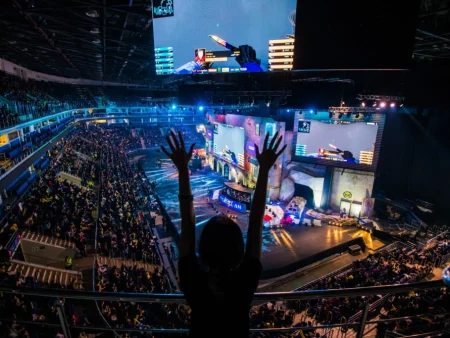The UK's games industry trade body UK Interactive Entertainment (Ukie) has published guidelines on the provision of loot boxes, in which it has recommended age-restricting loot boxes to over-18s.
Ukie’s guidelines come as a result of the Technical Working Group. This was set up in July 2022 by the Department for Culture, Media and Sport (DCMS).
The group was created in response to the government releasing its findings from a call to evidence regarding loot boxes, which was launched in September 2020.
This was convened due to concerns that young people using loot boxes in video games were effectively gambling underage. Loot boxes often require real money to unlock in-game features or tools.
Main recommendations
As such, the Ukie guidelines have recommended that loot boxes are made completely unavailable to young people, unless enabled by a parent or guardian.
“Publishing these shared principles for how the industry approaches loot boxes is a UK first and provides us with a clear direction moving forwards,” said Daniel Wood, co-CEO of Ukie. “The principles will improve protections for all players and underlines the industry’s commitment to safe and responsible play.
“We look forward to working collaboratively across industry and with others to implement them over the coming months.”
In a statement released today (18 July), DCMS said that it welcomes these developments. It said that it hopes they strengthen player protection measures – particularly in reference to young people.
“The government welcomes this guidance which, if fully implemented, has the potential to enhance player protections in line with the objectives set out in the government response,” said DCMS.
The suggested guidelines
In total, Ukie has presented 11 guidelines for loot box use. It recommends that technological controls are put in place to prevent under 18s from using loot boxes. These technological controls would require parental consent to circumvent.
This must also be coupled with driving awareness around these technological controls.
DCMS specifically praised this recommendation for parental consent and called on the wider industry to tighten up its rules on parental controls.
“We welcome the clear commitment in the new industry guidance to use technological controls to restrict anyone under the age of 18 from acquiring a paid loot box without the consent or knowledge of a parent or guardian,” DCMS continued.
“As part of implementing its guidance, we call on industry to increase and monitor the uptake of parental controls and to ensure widespread adoption of current best practice of default £0 spending limits on child accounts, applying both to loot boxes and other in-game purchases.”
Keeping players informed
In addition, Ukie’s guidelines suggest that the presence of loot boxes in a game must be disclosed before purchase or download. This is so the player can be fully informed.
While recommendations like these are unsurprising, Ukie also suggests a number of more unexpected measures.
This includes the formation of an expert panel on age assurance in the games industry and a commitment to lenient refund policies on loot box purchases that have been carried out without the knowledge of a parent or guardian.
In terms of the lenient refund policy, DCMS said this was an important “backstop” in order to block financial harms from occurring.
“We recognise that, even with these improvements, parental controls and age assurance technologies may not always prevent children from purchasing loot boxes without prior parental consent,” the statement continued. “Refunds are therefore an important backstop to further mitigate the risk of financial harms which may be associated with loot boxes.”
Similar moves elsewhere
Loot boxes have long been a criticised aspect of gaming, In July 2022 – one day after the call to evidence results were released, Dame Rachel de Souza, the UK Children’s Commissioner deemed loot boxes as “inappropriate”.
She urged video game developers to address the effect non-regulated loot box access could have on young people.
Also in July 2022, in Spain, the country’s Ministry of Consumer Affairs published a draft bill that would address the regulation of loot boxes. At the time, Spain was seen to be the first country in the EU to regulate loot boxes specifically.
This process dates back to February 2021, when Spain’s regulator Dirección General de Ordenación del Juego (DGOJ) opened a consultation posing how loot boxes should be regulated.
Meanwhile, from 1 January 2023, German video game age-rating body Unterhaltungssoftware Selbstkontrolle began to consider whether loot boxes should factor into its age-rating system.
Original Article















